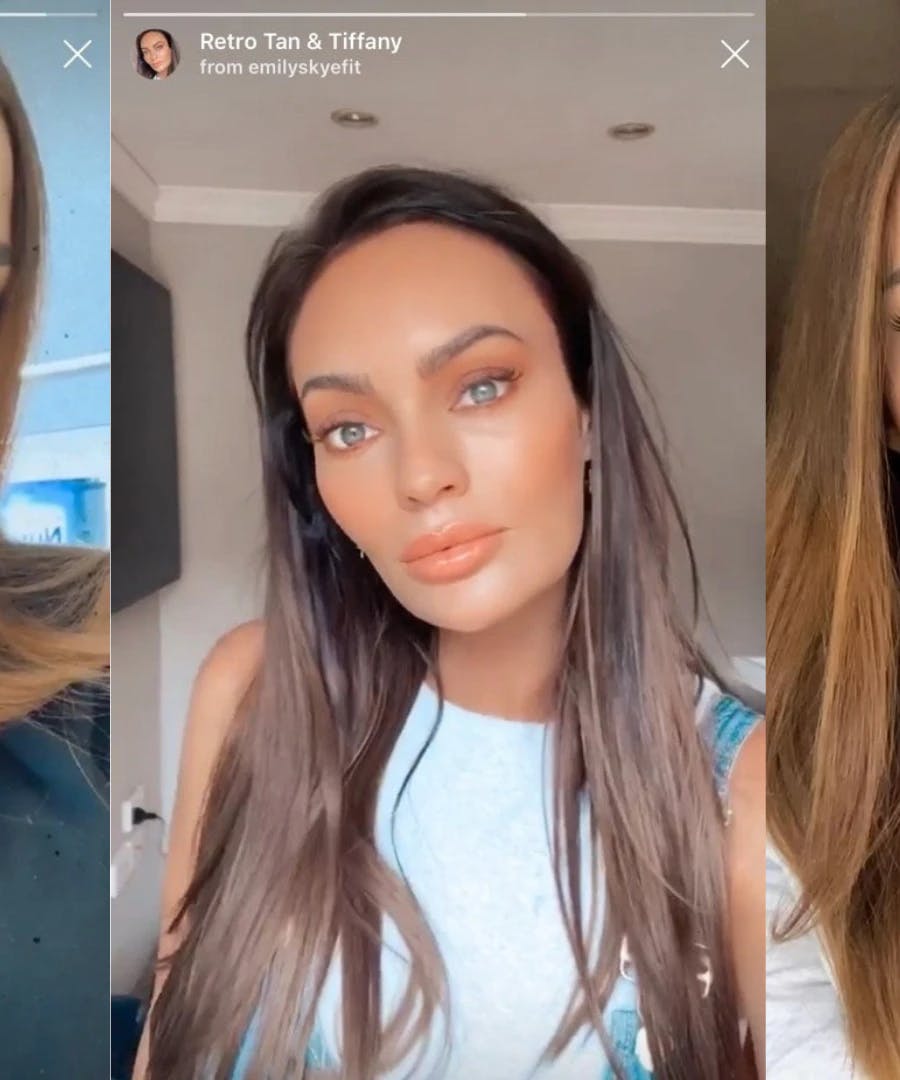Instagram Filters Are Super Dangerous For Young Women’s Self-Esteem
We’ve all heard that social media doesn’t represent reality, but that doesn’t stop it from negatively affecting our self-esteem.

Scrolling through social media has undoubtedly become an everyday occurrence for Gen Z and Millennials alike. For most of us, reaching for our phones the moment we wake up is a given. Opening Instagram, TikTok, or Snapchat inevitably happens soon after.
We rely on social media to make and keep connections — I don’t think I’m alone in having friends whose preferred method of contact is through Instagram rather than texting. But we also rely on social media to produce a persona for the world to see. We carefully select what we upload to our stories, the photos we choose to represent us on our feeds, and spend more time brainstorming for the perfect caption than we do penning a message to our grandmother on her birthday.
We’ve all heard it said that social media doesn’t represent reality, that we shouldn’t take it so seriously. It's common knowledge that nothing we scroll past on Instagram is candid or genuine. Despite knowing these truths, we can’t escape the effects social media has on us, from the hours we spend scrolling, to the stress of making sure our content measures up to everyone else’s.
But perhaps the worst thing about social media, especially for young women? The toll it takes on our self-esteem, mental health, and body image.
Everything We See Is Edited to Death
It’s hardly groundbreaking to point out that the grand majority of what we come across on social media is edited in some sense. Sometimes it’s with a moody black-and-white filter, other times it’s with the help of FaceTune — an app that’s both every young woman’s hero and enemy, thanks to its ability to reshape our bodies and faces into shapes and sizes that we deem acceptable.
In fact, FaceTune’s reach is so widespread that studies have concluded that 71% of Instagram users have FaceTuned their photos. In times past, we’d be confronted with airbrushed photos in magazines or on billboards, with only actors and models being photoshopped. Now, photoshop is absolutely everywhere, being used by everyone.
But We Still Compare Ourselves
Understanding that much of what we scroll past is fake doesn’t stop us from comparing ourselves. I’ve never come across an Instagram model’s bikini picture without a twinge of insecurity. Instead of reminding myself that she most likely tweaked whatever she’s insecure about, I find myself wondering if I could ever measure up, if my thighs will ever look like hers. I struggle with these insecurities despite knowing the likelihood that her picture is less than candid, that I’m comparing myself to someone who doesn’t even exist — and many young women share that struggle.
The studies are clear: social media makes us unhappy, and oddly enough, even lonelier. Despite the connections we can make and keep, we’re more than likely to wonder if our lives measure up to everyone else’s, feel depressed scrolling through our feed, and experience FOMO. With unrealistic beauty filters and pro-anorexia content thrown in the mix, the positive body image of countless young women has been destroyed.
Younger Women Are Going Under the Knife
We have a collective image of the women who get plastic surgery as being in their fifties, obsessing over their sagging skin and fading youth, clinging to whatever makes them feel young. And for a long time, it was older women going under the knife.
With the rise of Instagram, filters, and editing apps, however, things have changed. The girls and women seeking out plastic surgery are getting younger. Teenage girls and young women in their twenties and thirties are getting lip fillers, fox eye surgery, nose jobs, and botox in an attempt to look the way Instagram models do in their heavily edited selfies — a look commonly referred to as “Instagram face.”
So What Can We Do?
Our reliance on and obsession with social media has made us feel that we’re supposed to be active on it, that choosing to refrain from partaking is abnormal. But if social media truly hurts our self-esteem, increases our depression, and it’s not necessary for us to be on it, there’s no reason we should feel pressured to participate.
However, not all of us want to live life completely social media-free. It’s a way of networking, staying in touch with old pals and family, forming new connections with kindred spirits, and finding content that’s inspiring to us — social media isn’t all bad, after all. But it’s essential that we use social media as a way of finding a community that positively affects us and only interact with that.
Use social media to find a community that positively affects you and only interact with that.
The most effective way I’ve stayed away from photos that would make me insecure is by not following the accounts that post them — a simple approach, yet often overlooked as an option. Along with only allowing myself to edit with filters focused on coloring (I love having a cohesive feed!), I've learned how to more healthily engage with social media.
Closing Thoughts
Being active on social media, all while trying to maintain a positive self-image, is challenging. The constant barrage of intensely edited selfies and bikini pictures is bound to make even the most confident person take a second look at themselves in the mirror. If we choose to be on social media, it’s crucial that we find ways to participate that won’t leave us worse off.
We want to know what you think about Evie! Take the official Evie reader survey.